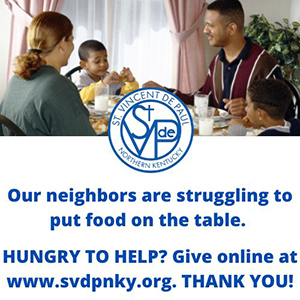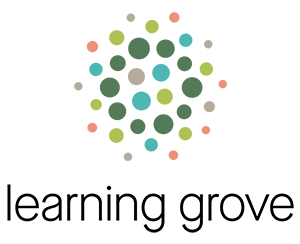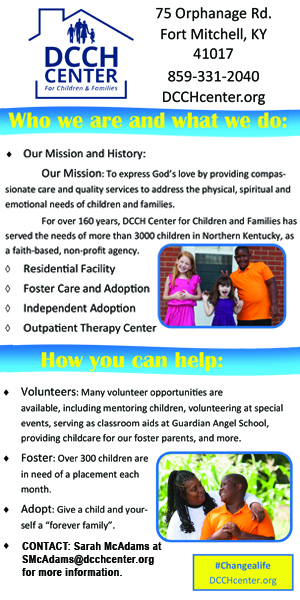By Maridith Yahl
NKyTribune health reporter
Zachary “Guff” McGuffey always wanted to be a Marine and proudly served four years in the U.S. Marine Corps, 2007-2011. Despite his warrior spirit, his on-going battle is against depression. This fight has turned into his life work, helping other veterans to overcome and find their coping skills and victories.

‘Guff’McGuffey wanted to reach out to other veterans
In the Infantry, he was an assault man, specializing in demolitions and rockets. He loved what he did and the people. Being stationed at Camp Pendleton in California was not bad either.
He served in Iraq in 2009, where one member of his unit was lost during an ambush. Next, he was deployed to Afghanistan in 2010-2011. Stationed in the southern Helmand Province for seven months, he patrolled every day. The last five months there his unit lived on a hill. “We stuck in, filled sandbags, lived in a hole in the hill,” Guff says. They were on the front line surrounded by concertina wire. The closest unit was a couple of miles away, requiring them to walk through Improvised Explosive Device (IED) areas. Food and water had to be airdropped to them.
Returning home, Guff did not have any veteran friends here. He felt alone and could not find meaningful work. After four years as a Marine, he did not have training which translated to a civilian job.
The war, Post Traumatic Stress Disorder (PTSD), and Traumatic Brain Injury (TBI) had its effects on him. One night in January 2013, Guff attempted suicide. He got “really drunk,” wanting his mom to think it was a drunk driving accident. He drove his truck, without wearing a seatbelt, down a winding road, and intentionally flipped it. The truck rolled on its side, slid, and hit a parked car. He crawled out of the truck with a busted elbow needing stitches and road rash on his back. “I guess I’m pretty resilient,” he says.

Mountaineering with some friends
After his suicide attempt, he said he thought about it, but not much, putting it behind him. Eleven months later, December 5, his best friend and fellow Marine, Brandon Robinson, killed himself. Robinson had called Guff on Thanksgiving Day to check on him. He was about to graduate later that month with a degree in mechanical engineering. Engaged and having a young child, to Guff, Robinson had everything.
On the 12-hour drive home from Robinson’s funeral, with a broken radio, he had time to think. He kept asking himself if there was anything he could do. He enrolled in school and started working out at Swing This Kettlebell in Covington. Another marine there heard Guff tell his story. Noticing how powerful it was, he urged Guff to do something. “So, I started a Facebook page for Marines to come and talk,” says Guff.
The Facebook page became popular. He began speaking at events and donations came in. Someone then suggested he start a non-profit and 22 Until Valhalla was born.
22 Until Valhalla has been running for six years to prevent veteran suicide through physical, mental, and emotional lifestyle development. When it began, Guff says the statistic was that 22 veterans committed suicide every day. The rate has since changed, making the number mostly symbolic.
‘Until Valhalla’ comes from a religion of the northern countries of Norway, Denmark, and Sweden. “In their religion, there is a prayer, ‘Until we meet again in the halls of Valhalla where the brave shall live forever,’” says Guff.
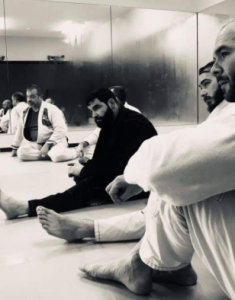
Taking on jujitsu
In December 2010, his best friend was killed when he stepped on an IED. “Until we meet again Valhalla until we meet again in the hall of Valhalla,” is how they said, ‘cheers’ to him. “Val means warrior and Halla means hall…Valhalla is where warriors go,” Guff says. The name came to him instantly.
Guff began speaking across the country, networking, and connecting with other veterans. “I just kind of figured out what I think helps with veterans [that] other nonprofits weren’t necessarily offering,” he says. That is what 22 Until Valhalla offers, what works to help heal each veteran.
For Guff, going into a float tank has been beneficial. “This is incredible, veterans should be doing this,” he said. It is sensory deprivation. “You go in there and close the hatch, you’re completely buoyant. There’s no light or sound to help your body physically, mentally, and emotionally reset underwater,” Guff says. He goes to and sends veterans to Think Tank Flotation in Newport.
Hiking, climbing, meditation, yoga, and CrossFit were all skills he acquired to get back into physical shape. All are therapeutic to him and he had begun to get his life back on track. He wanted to share this with other veterans so they too could reap the benefits.
He met a veteran who runs a nonprofit which takes veterans skydiving, mountain biking, mountaineering, base jumping, and other such experiences. Now the two work together, taking veterans on a climb every year. Guff has climbed Mount Rainier four times.
22 Until Valhalla has a scholarship program for yoga and jujitsu, locally or nationally.
Veterans apply online and find a facility where they live, the non-profit takes care of the payment. Soon, he hopes to offer equine therapy.
“I love it. I love being able to just get veterans what they think they need and learn skills,” Guff says.
“We also offer a program for children left behind from veterans’ suicide. If a child’s parent commits suicide, they are at a 30% higher rate of committing suicide when they reach maturity,” Guff says.
The scholarship gives them a head-start in education, providing $1,000 so the child can go to any type of training, whether it be traditional college or trade school. If the child is younger, the money is put in an account that accrues.
Funding for 22 Until Valhalla mostly comes from donations.
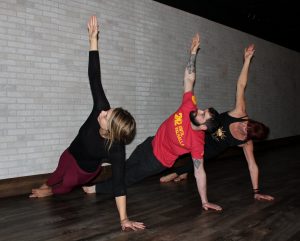
Yoga helps
“We’re all grassroots. We’ve never [received] a grant or anything, just donations, t-shirt sales, just whatever we can,” says Guff. Donations and t-shirts can be made or purchased on the website.
Usually, they have two large fundraisers each year. One is a motorcycle ride.
“Cruising to Combat PTSD” (CtCPTSD) held a ride beginning at Bircus Brewing Co. in Ludlow and ended at Ludlow Vets with raffles/auction, split the pot, food/drinks, and music.
As soon as COVID is over he plans to ramp up fundraisers, so keep an eye on the Facebook page and website for information to come.
“I try not to hang my hat on being a veteran because I think one of the biggest issues is veterans don’t have victories outside the military,” Guff says. He says veterans mostly identify with what they accomplished in the military as being their greatest. “That’s why I want to learn jujitsu, get a black belt and that could be a new victory,” he says. Learning yoga, climbing to the top of a mountain are all his new victories.
“I know what it’s like to deal with that alone. I don’t want anybody else to do that,” he says. “It made me stronger. I don’t want any veteran to go through that again,” Guff says.
This is why he now spends every free minute he has helping his fellow brother and sister veterans to not walk alone and achieve their new own victories.












